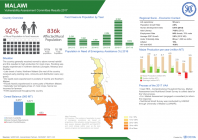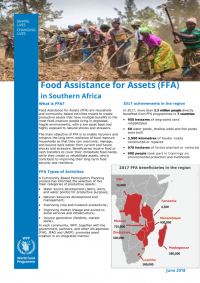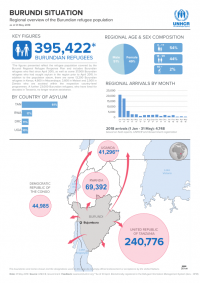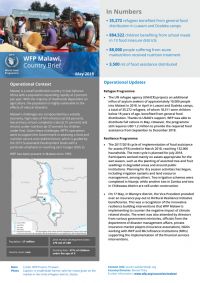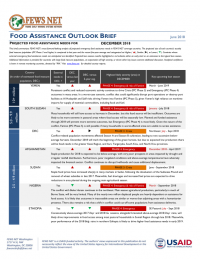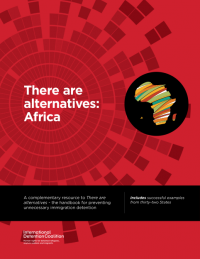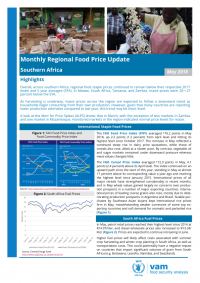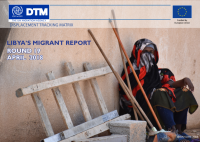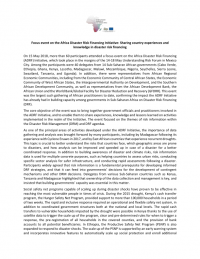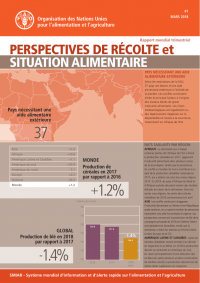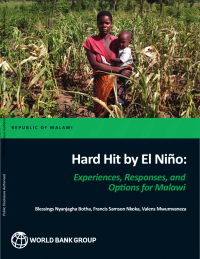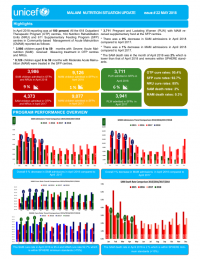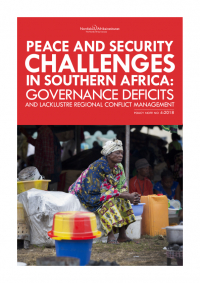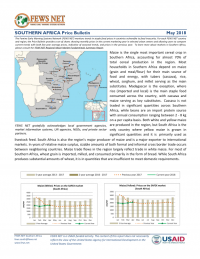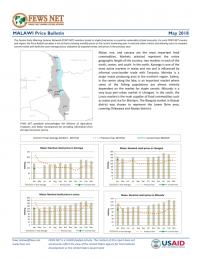Malawi
OngoingDisasters
- Southern Africa: Armyworm Infestation - Jan 2017
- Southern Africa: Floods - Jan 2017
- Malawi: Cholera Outbreak - Dec 2015
- Southern Africa: Food Insecurity - 2015-2017
- Mozambique/Malawi: Cholera Outbreak - Feb 2015
- Southern Africa: Floods - Jan 2015
- Malawi: Floods - Jan 2013
- Malawi: Food Insecurity - 2012-2014
- Mozambique: Storms and Floods - Jan 2012
- Southern Africa: Floods - Jan 2011
Most read (last 30 days)
What is FFA?
Food Assistance for Assets (FFA) are householdand community-based activities meant to create productive assets that have multiple benefits to the most food-insecure people living in degraded, fragile environments, with a low asset base and highly exposed to natural shocks and stressors.
*The figures presented reflect the refugee population covered by the Burundi Regional Refugee Response Plan and includes Burundian refugees who fled since April 2015, as well as some 37,000 Burundian refugees who had sought asylum in the region prior to April 2015. In addition to the population above, there are some 13,200 Burundian refugees in Kenya, 4,800 in Mozambique, 3,600 in Malawi and 2,500 in Zambia who are assisted within the respective country-level programmes. A further 23,000 Burundian refugees, who have lived for decades in Tanzania, no longer receive assistance.
Lilongwe, June 19, 2018: President Prof Arthur Peter Mutharika has affirmed his government’s commitment to end hunger and malnutrition which remains high among Malawians especially children.
Mutharika made the remarks in Lilongwe at Kamuzu Palace on Monday during an audience with His Majesty King Letsie III of the Kingdom of Lesotho. The king is in the country in his capacity as United Nations Food and Agriculture Organization (FAO) Special Ambassador on Nutrition.
In Numbers
35,272 refugees benefited from general food distribution in Luwani and Dzaleka camps
884,522 children benefiting from school meals in 13 food insecure districts
88,000 people suffering from acute malnutrition received nutrition treatment
3,500 mt of food assistance distributed
Operational Context
PROJECTED FOOD ASSISTANCE NEEDS FOR DECEMBER 2018
Guide for policy makers
This report provides an overview of alternatives to immigration detention in Africa. Drawing from examples in 32 African countries, the report highlights some of the measures in place that contribute to the effective and humane governance of migration, while avoiding the use of unnecessary immigration detention.
African policy makers are facing both internal and external pressure to manage migration more effectively. The research undertaken for this report demonstrates that:
Highlights
Overall, across southern Africa, regional food staple prices continued to remain below their respective 2017 levels and 5 year averages (5YA). In Malawi, South Africa, Tanzania, and Zambia, maize prices were 20—27 percent below the 5YA.
As harvesting is underway, maize prices across the region are expected to follow a downward trend as households begin consuming from their own production. However, given that many countries are reporting lower production estimates compared to last year, this trend may be short-lived.
Joint op-ed by UN Women, UNFPA and UNDP
The numbers are shocking: at least one in three women on the planet has suffered physical or sexual violence, usually at the hands of a family member or intimate partner. More than 700 million women alive today were married as children. Up to 250 million women and girls have undergone female genital mutilation.
OVERVIEW
MIGRANT BASELINE
On 15 May 2018, more than 60 participants attended a focus event on the Africa Disaster Risk Financing (ADRF) Initiative, which took place in the margins of the 14-18 May Understanding Risk Forum in Mexico City. Among the participants were 40 delegates from 14 Sub-Saharan African governments (Cabo Verde, Ethiopia, Ghana, Kenya, Lesotho, Madagascar, Malawi, Mozambique, Nigeria, Seychelles, Sierra Leone, Swaziland, Tanzania, and Uganda).
Administrador del PNUD.Los números son impactantes: al menos una de cada tres mujeres en el planeta ha sufrido violencia física o sexual, generalmente a manos de un miembro de la familia o una pareja íntima. Más de 700 millones de mujeres en la actualidad se casaron cuando eran niñas. Hasta 250 millones de mujeres y niñas han sido sometidas a mutilación genital femenina.
Les problèmes liés au pâturage et les répercussions du conflit sur le commerce de bétail contribuent à faire augmenter les souffrances liées à la faim chez les éleveurs ouest-africains
In Malawi, the impact of extreme weather events has significantly contributed to the recurrent crises of food insecurity. This analytical work was undertaken to assist the Government of Malawi to strengthen its efforts toward effectively responding to extreme weather-related events, especially El Niño and La Niña phenomena.
Highlights
In April 2018 reporting was at 100 percent. All the 618 Outpatient Therapeutic Program (OTP) centres, 104 Nutrition Rehabilitation Units (NRU) and 611 Supplementary Feeding Program (SFP) centres in Community-based Management of Acute Malnutrition (CMAM) reported as follows:
3,986 children aged 6 to 59 months with Severe Acute Malnutrition (SAM) received lifesaving treatment in OTP centres and NRUs.
9,126 children aged 6 to 59 months with Moderate Acute Malnutrition (MAM) were treated in the SFP centres.
Armed insurgencies, social cleavages and governance deficits relating to authoritarian rule and abuse of state resources all imperil peace and stability in Southern Africa. The Southern African Development Community’s institutional framework for regional peace and security is proving ineffective because its leaders are unwilling to enforce democratic principles.
Michael Aeby, Researcher, Graduate Institute Geneva
Maize is the single most important cereal crop in Southern Africa, accounting for almost 70% of total cereal production in the region. Most households in Southern Africa depend on maize (grain and meal/flour) for their main source of food and energy, with tubers (cassava), rice, wheat, sorghum, and millet serving as the main substitutes. Madagascar is the exception, where rice (imported and local) is the main staple food consumed across the country, with cassava and maize serving as key substitutes.
Maize, rice, and cassava are the most important food commodities. Markets selected represent the entire geographic length of the country: two markets in each of the north, center, and south. In the north, Karonga is one of the most active markets in maize and rice and is influenced by informal cross-border trade with Tanzania. Mzimba is a major maize producing area in the northern region. Salima, in the center along the lake, is an important market where some of the fishing populations are almost entirely dependent on the market for staple cereals.
This Second Round of Funding Builds on Initial $6.7 Million Grant Program
Food access improves with new harvests and declining staple food prices
Key Messages
Harvesting of major crops is intensifying across the country and is expected to extend into June, especially for central and northern regions. These activities continue to improve food access for farming households. However preliminary reports from the Ministry of Agriculture, Irrigation, and Water Development indicate that maize production for the 2018/19 consumption will be below average.
The Ministry of Agriculture, Irrigation and Water Development wishes to inform the general public that there is a suspected outbreak of Foot and Mouth Disease that has been reported in Lisungwi and Kuthembwe Extension Planning Areas in Neno and Blantyre Districts.
